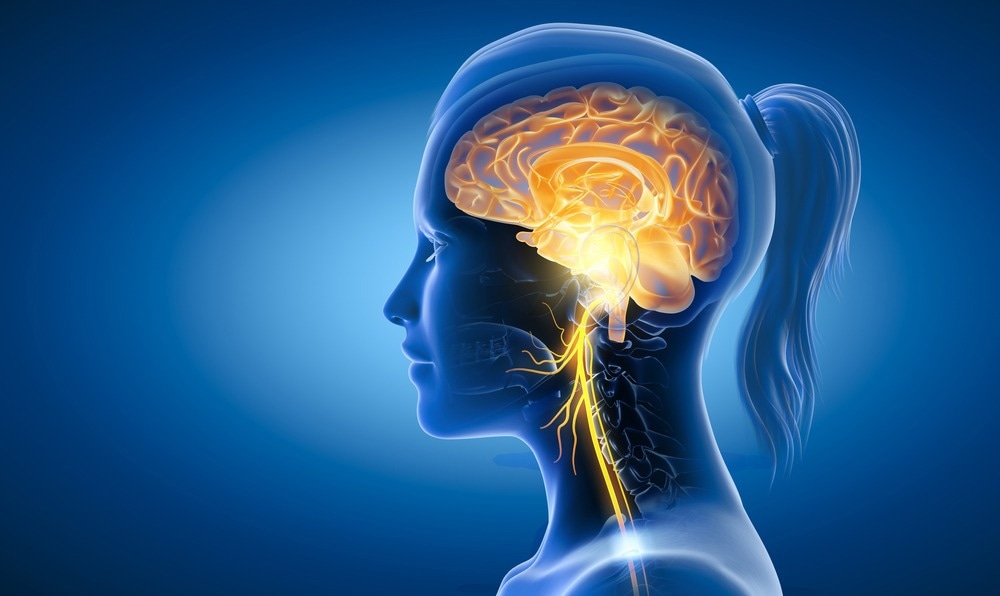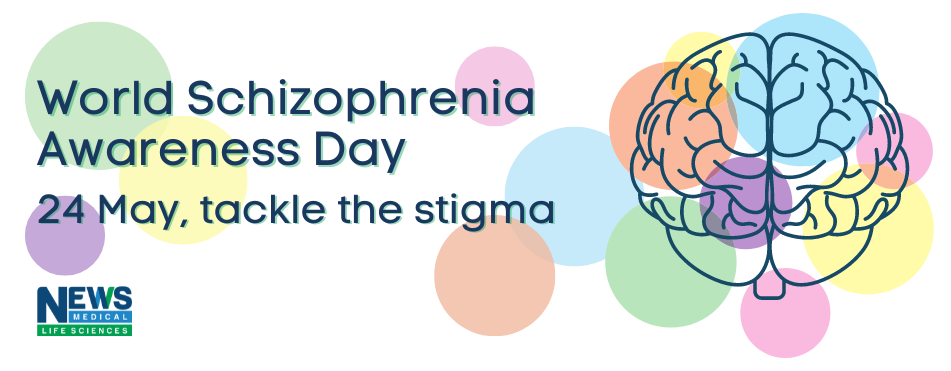Professor Thomas Burne: I am a Professorial Research Fellow at UQ’s Queensland Brain Institute and the Queensland Centre for Mental Health Research. As a neurobiologist, my particular expertise is in the development and application of animal models of neuropsychiatric disorders.
Professor Darryl Eyles: I am interested in the neurobiology of schizophrenia and autism and have 35 years of research experience in this field. With a particular focus on dopamine systems, my lab focuses on how risk factors for schizophrenia and autism, such as developmental vitamin D deficiency and maternal immune activation, and how to change the way the brain develops and functions.
You are a member of The Queensland Brain Institute (QBI), home to some of the most cutting-edge schizophrenia research in the world. Please could you briefly outline your research interests and activities?
Dr. James Kesby: I am particularly interested in what brain changes underlie the decision-making problems in schizophrenia. My work uses rodent models and the most advanced tools at our disposal to modulate specific brain circuits and understand how the brain navigates our choices. I pair these pre-clinical approaches with studies in people with and without schizophrenia. By combining this knowledge, we can better understand how decision-making processes are altered in people with schizophrenia and which brain areas/circuits could contribute to these changes based on my work in rodents.
Professor Thomas Burne: My lab’s research goal is to investigate the role of environmental and genetic risk factors in the etiology of neurodevelopmental disorders such as schizophrenia and autism. My long-term vision is that studying these processes in animals will lead to a greater understanding of the role of non-genetic and genetic factors in brain development and adult brain function. We are refining ways of interpreting animal behavior to improve our understanding of cognition, such as decision-making and executive function, and ultimately provide models to better test therapies for mental disorders. Building on our discoveries that vitamin D impacts the developing brain, my team has made recent discoveries on the role of vitamin D in synaptic plasticity in the adult brain and the impact of vitamin D deficiency on mild cognitive impairment in people.

Image Credit: Axel_Kock/Shutterstock.com
My other goal is to develop more sophisticated paradigms to assess cognitive function in rodents. Schizophrenia is a disorder characterized by positive and negative symptoms. However, the cognitive symptoms are poorly treated by medication.
Professor Darryl Eyles: One of the very few neurobiological findings in schizophrenia is increased dopamine synthesis and release in a part of the brain called the dorsal striatum. Several studies have also shown this abnormality increases in individuals transitioning from the disease prodrome to diagnosis. I build models in animals mimicking this abnormality to:
a) understand the impact this has on the areas of the brain that connect with the dorsal striatum
b) understand the timing for when brain processes that govern schizophrenia-relevant behavioral phenotypes emerge
c) see if we can pharmacologically prevent schizophrenia from occurring.
How has your particular area of schizophrenia research changed over the last 20 years, and what questions remain?
Dr. James Kesby: The major revolution was the understanding of where in the brain certain neurochemical changes, thought to underlie psychosis, were located. We used to believe that psychosis was due to too much dopamine in one part of the striatum, but better medical equipment (cameras that can now see into people’s brains) has shown definitively that these changes are in a different subregion of the striatum than previously thought. Not only has this shifted our understanding of schizophrenia, but it has directly impacted how I model psychosis in animals. It has also provided new potential avenues for developing new treatments that improve a greater number of symptoms.
Professor Thomas Burne: In the past 20 years, we have discovered many biologically plausible risk factors that impact the developing brain and contribute to the incidence of schizophrenia. Many questions remain, including the interaction of the different risk factors we identified in our research.
Professor Darryl Eyles: Undoubtedly, the Positron emission tomography data in patients convincingly showed us where in the brain the dopamine abnormality occurs, that this abnormality is pre- rather than post-synaptic, and that it is dynamic has dominated my thinking about how to understand the causes of schizophrenia.
Schizophrenia requires lifelong treatment. What are the current treatment options for schizophrenia, and how do you hope your work can influence the schizophrenia treatment landscape?
Dr. James Kesby: Unfortunately, our current treatment options for schizophrenia are limited, and these options are only helpful in reducing psychotic symptoms – not those affecting cognition, motivation, and emotional expression. My work aims to identify what alterations in brain function may cause decision-making problems, and this information could lead to the development of new treatments. I am particularly interested in how decision-making processes decline after the onset of a psychotic episode. By understanding how this occurs and who may be more likely to experience declines, my research aims to inform how we can better direct interventions and deliver support in early psychosis services.

Professor Thomas Burne: Of particular concern with current antipsychotic medications is the undesirable side effects, including metabolic and cardiovascular effects. A key challenge is understanding the causes of this disorder, including known complex environmental and genetic risk factors that also overlap with other neuropsychiatric disorders. Together with helping to treat cognitive symptoms, our goal is to ultimately find better treatments (pharmacological or behavioral) to promote healthy brain aging and improve quality of life.
Professor Darryl Eyles: The current treatments for schizophrenia are grossly inadequate and produce life-threatening/shortening side effects.
One major collaboration I have is attempting to bypass the oral route for the most effective antipsychotic, Clozapine. Clozapine produces terrible metabolic outcomes in patients, increasing rates of diabetes/weight gain and cardiovascular dysfunction. In collaboration with pharmaceutical researchers, we have developed a way of chemically packaging and delivering Clozapine to the nose.
Our animal data indicates we can successfully concentrate this drug in the brain and produce an industry-standard antipsychotic action at a fraction (3.5%) of an oral dose to produce the same outcome. The exciting aspect of this work is that we can dramatically reduce these debilitating metabolic effects. This work has huge implications for all antipsychotic drugs.
Schizophrenia is a highly stigmatized condition. Why is this, and what can be done to destigmatize schizophrenia?
Dr. James Kesby: When the word schizophrenia is mentioned, most people think of psychosis. Media representations of psychosis mean many people fear someone with psychosis and think of them as violent. This is not true, and we can treat the psychosis associated with schizophrenia relatively well in most cases. Many disorders feature psychosis, but for those living with schizophrenia, cognitive problems are considered the biggest hardship. These symptoms make it more challenging to maintain work and friendships, things most people take for granted. We should all appreciate that people with schizophrenia, and other severe mental illnesses, suffer from symptoms that make their daily lives more challenging. By being more mindful, accommodating and supportive of the different challenges people with schizophrenia face, we can all help decrease the stigma associated with this mental illness.
Professor Thomas Burne: Schizophrenia is often misunderstood as a split personality disorder, which has led to a lot of stigma. Instead, schizophrenia involves an altered perception of reality, which can greatly impact an individual’s day-to-day activities. So rather than marginalize people with this condition, we should offer them support within the community and greater awareness and assistance.

Image Credit: PopTika/Shutterstock.com
Professor Darryl Eyles: People do not understand that schizophrenia is a brain disorder, just like cardiovascular problems are a disorder of heart function. We need the public to understand that the brain is an organ like any other, and people with this disorder need our help, not fear.
Are there any misconceptions you wish people would better understand?
Dr. James Kesby: I wish people understood that schizophrenia is more than psychosis. It features a range of complex cognitive and motivational problems that we cannot improve with current treatments.
Professor Thomas Burne: Often, people see schizophrenia as a violent and aggressive disorder (“psycho”), but this is largely untrue and results from media hype.
Professor Darryl Eyles: I wish people could understand that this disorder is frightening for patients. Being unable to function cognitively while having voices talk to you must be incredibly debilitating.
World Schizophrenia Awareness Day aims to raise awareness of this mental illness that affects over 20 million people worldwide. Why, in your opinion, is it so important to raise awareness around schizophrenia?
Dr. James Kesby: Schizophrenia is one of the most devastating illnesses a person can suffer from. Its onset is at a stage of life (~15-25 years of age) when we are figuring out who we are as people and what job/career we want to work towards. Not only does schizophrenia dramatically impact someone’s ability to prepare for the workforce, but it can also make it hard to catch up. We need to provide more support to help people get back on track, as well as focus on finding new ways to alleviate the symptoms or prevent them entirely.
Professor Thomas Burne: We need better awareness of schizophrenia because we do not understand the causes of this condition, nor do we have a cure. We also need better treatments with fewer side effects. Despite a concerted effort over the last 50 years, much work is still required to raise awareness and advance our understanding of the condition.

Image Credit: SOLOVEVA ANASTASIIA/Shutterstock.com
Professor Darryl Eyles: Stigma/ignorance/fear. These words often describe someone interacting with a patient. People with schizophrenia need our understanding and engagement and to be encouraged to seek professional assistance when unwell.
What is next for you and your research?
Dr. James Kesby: My research focuses on looking in more detail at how our brain makes the calculations we require to act on a decision, especially when we are uncertain of the outcomes. We have data suggesting that people with psychosis respond to uncertainty differently than those without schizophrenia. I am interested in understanding why this is the case.
Professor Thomas Burne: Recent genome-wide association studies have revealed hundreds of candidate genes that increase the risk of disease. However, in most cases, the underlying biology of these genes is not known. We have been able to examine how mutation of specific candidate genes in rodents influences brain development and how these impact animal behaviors with potential relevance to people. This knowledge is developing a better understanding of the disease process and hopefully give us clues to future treatment options.
I am also committed to building research capacity and training the next generation of researchers for different career pathways in a rapidly evolving world of schizophrenia research, particularly harnessing new technologies in imaging, chemogenetics, and behavioral pharmacology.
Professor Darryl Eyles: We are working on a connectivity study in two animal models to examine how cortical neurons respond to increased dopamine release/firing. This may help us understand how abnormalities in dopamine function change how cortical neurons function, thereby providing leads for understanding cognitive abnormalities in this disorder. It may also help provide new therapeutic targets.
Also coming up is a clinical trial for our intranasal Clozapine study. In the first instance, this will be a tolerability trial for our vehicle (Sol Gel), which is how we suspend the chemically packed Clozapine. If that is tolerated well by patients, we will seek funding for a clinical trial of the active agent in treatment-resistant patients.
Where can readers find more information?
- Dr. James Kesby’s google scholar profile: https://scholar.google.com.au/citations?hl=en&user=5EDjT-0AAAAJ
- “The Conversation” articles:
- TEDxUQ talk: https://youtu.be/y5CZiuT-g3M
- Mayne, P.E. and Burne, T.H.J. (2019) Vitamin D in synaptic plasticity, cognitive function, and neuropsychiatric illness. Trends in Neurosciences. 42(4), 293-306. doi: 10.1016/j.tins.2019.01.003
- Conn, K.-A., Burne, T.H.J. and Kesby, J.P. (2020) Subcortical dopamine and cognition in schizophrenia: Looking beyond psychosis in preclinical models. Frontiers in Neuroscience. 14, e542. doi: 10.3389/fnins.2020.00542
- Cui, X., McGrath, J.J., Burne, T.H.J. and Eyles, D.W. (2021). Vitamin D and schizophrenia: 20 years on. Molecular Psychiatry. 26(7), 2708-2720. doi: 10.1038/s41380-021-01025-0
- Flintoff, J., Kesby, J.P., Siskind, D. and Burne, T.H. (2021). Treating cognitive impairment in schizophrenia with GLP-1Ras: an overview of their therapeutic potential. Expert Opinion On Investigational Drugs. 30(8), 877-891. doi: 10.1080/13543784.2021.1951702
About Dr. James Kesby
Dr. James Kesby is an emerging leader in the field of psychosis neurobiology and decision-making. The impact of his work and leadership have been recognized through an Advance Queensland Research Fellowship (2016-2019) and awards for his innovative approaches. For example, he received a 2019 Brain & Behavior Research Foundation Maltz Prize for Innovative Schizophrenia Research for leading cross-species studies of decision-making. As lead CI, he has completed multiple grants leading to significant outputs, including a Peter F. McManus Charitable Trust Grant (Kesby et al., Addict Biol. 2018), Advance Queensland Research fellowship (5 papers including Suetani et al. Cog Affect Behav Neurosci. 2022) and an NHMRC sole-CI Project Grant (4 papers including Cui et al., Int J Mol Sci. 2021). He led invited discussions for the National Mental Health Research Strategy Workshop in 2020 (National Mental Health Commission, Australian Government), demonstrating the recognition of his expertise in mental health research.
The impact of his work and leadership have been recognized through an Advance Queensland Research Fellowship (2016-2019) and awards for his innovative approaches. For example, he received a 2019 Brain & Behavior Research Foundation Maltz Prize for Innovative Schizophrenia Research for leading cross-species studies of decision-making. As lead CI, he has completed multiple grants leading to significant outputs, including a Peter F. McManus Charitable Trust Grant (Kesby et al., Addict Biol. 2018), Advance Queensland Research fellowship (5 papers including Suetani et al. Cog Affect Behav Neurosci. 2022) and an NHMRC sole-CI Project Grant (4 papers including Cui et al., Int J Mol Sci. 2021). He led invited discussions for the National Mental Health Research Strategy Workshop in 2020 (National Mental Health Commission, Australian Government), demonstrating the recognition of his expertise in mental health research.
About Professor Burne
Professor Burne is a leading Australian researcher in the field of biological psychiatry. Prof. Burne has a broad background in behavioral neuroscience, with specific training and expertise in behavioral brain research. As a Professorial Research Fellow with the Queensland Centre for Mental Health Research and Group Leader at the Queensland Brain Institute (QBI). His research focus includes cognitive testing in rodent models of neuropsychiatric disorders, such as schizophrenia, as well as psychopharmacological studies and research on clinical populations. Prof. Burne has >150 peer-reviewed publications, which ha ve attracted over 8500 citations (H-index 50). Together with collaborators, he has been awarded >$8 million in research funding. Since 2003, he has supervised 17 PhD students, and 28 honours students. Prof. Burne served as president of the Biological Psychiatry Australia Society, is the Queensland representative of the Australasian Neuroscience Society, is a member of the NHMRC Animal Welfare Committee, and sat on the international consensus panel for the use of psychoactive drugs in medical research.
ve attracted over 8500 citations (H-index 50). Together with collaborators, he has been awarded >$8 million in research funding. Since 2003, he has supervised 17 PhD students, and 28 honours students. Prof. Burne served as president of the Biological Psychiatry Australia Society, is the Queensland representative of the Australasian Neuroscience Society, is a member of the NHMRC Animal Welfare Committee, and sat on the international consensus panel for the use of psychoactive drugs in medical research.
About Professor Darryl Eyles
I run a developmental neurobiology laboratory partially funded by the Queensland Centre for Schizophrenia Research. Several research fellows, research assistants and PhD students are attempting to understand the neurobiology of severe mental illness. My discovery that the vitamin D receptor and the enzyme involved in the synthesis of the active vitamin D hormone is the most highly cited publication ever in the 30-year history of the Journal of Chemical Neuroanatomy. My early epidemiological studies were the first to show vitamin D deficiency during pregnancy is a risk factor for schizophrenia. My studies modeling numerous developmental risk factors for schizophrenia all  show they converge on developing dopamine systems. This may be the antecedent for the onset of schizophrenia later in life.
show they converge on developing dopamine systems. This may be the antecedent for the onset of schizophrenia later in life.